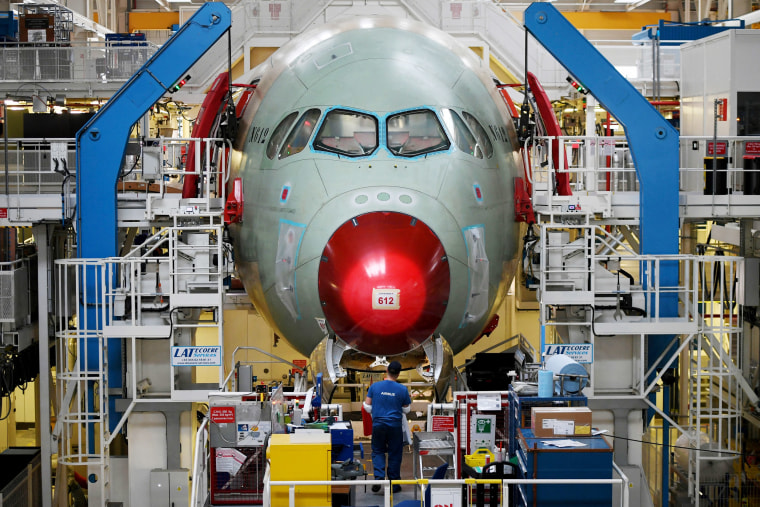Boeing and Airbus May Have Used Counterfeit Titanium in Planes, FAA Says
The aviation industry has been thrown into a state of concern as reports emerge that both Boeing and Airbus may have unknowingly incorporated counterfeit titanium parts into some of their aircraft. The Federal Aviation Administration (FAA) recently issued a warning to both manufacturers, highlighting the potential safety risks associated with the use of counterfeit materials in critical aircraft components.
The use of counterfeit titanium in aircraft has raised serious questions about the reliability and durability of these components, as well as the broader implications for aviation safety. Titanium is a vital material in aerospace engineering due to its high strength-to-weight ratio, corrosion resistance, and heat resistance. It is used in various parts of aircraft, including structural components, engine parts, and landing gear.
According to the FAA, the counterfeit titanium parts were traced back to a supplier that had falsified certification documentation, leading Boeing and Airbus to unwittingly incorporate the substandard material into their planes. The use of counterfeit parts compromises the integrity of the entire manufacturing process, potentially jeopardizing the safety of passengers and crew.
The implications of this revelation are far-reaching, impacting not only the reputation of Boeing and Airbus but also raising concerns about the supply chain integrity within the aviation industry. The incident underscores the need for stringent quality control measures and oversight to ensure that all components used in aircraft construction meet the required standards and regulations.
Safety is paramount in the aviation industry, and any compromise in the quality of materials used in aircraft manufacturing can have catastrophic consequences. The FAA’s alert serves as a wake-up call for both manufacturers and regulatory bodies to enforce stricter guidelines and verification processes to prevent the incorporation of counterfeit or substandard materials in aircraft production.
In light of these developments, Boeing and Airbus have pledged to conduct thorough investigations into their supply chains to identify any further instances of counterfeit materials and take corrective actions to ensure the safety and reliability of their aircraft. The onus is now on both manufacturers to instill confidence in the flying public by demonstrating their commitment to upholding the highest standards of safety and quality.
As the investigation unfolds and corrective measures are implemented, the aviation industry must learn from this incident and strengthen its vigilance against counterfeit materials entering the supply chain. The safety and well-being of passengers and crew depend on the industry’s ability to maintain the highest standards of quality and integrity in aircraft manufacturing. Only through collective efforts and unwavering commitment to safety can the aviation sector continue to soar to new heights with confidence and trust.



